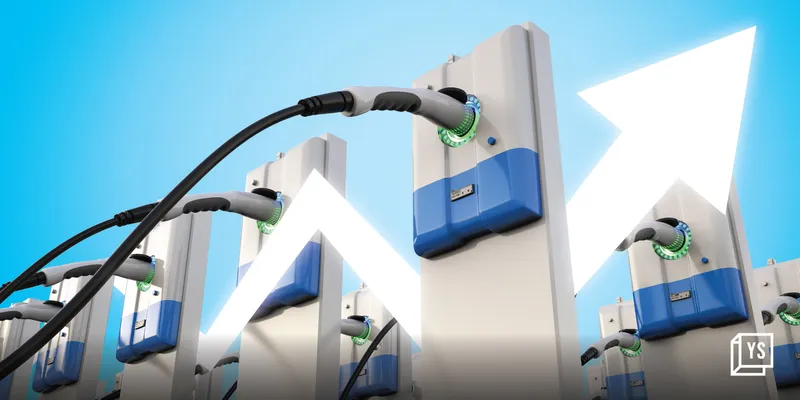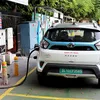Ola, Ather, Matter hike scooter prices after FAME II subsidy cut
The government of India, earlier this month, decided to reduce the subsidies given to electric to-wheelers under the FAME II scheme, effective June 1.
Electric two-wheelers may get costlier from June 1, 2023 with manufacturers resorting to price hikes as the FAME II subsidy cuts kick into effect.
Ola Electric revised its price upwards by Rs 15,000 for all scooters, while electric bike manufacturer Matter increased it by Rs 30,000. Ather Energy has also raised the prices for its EV scooters, YourStory has learned.
The decision to slash subsidies was announced by the Ministry of Heavy Industries (MHI) said earlier this month, and specifically targeted subsidies provided to buyers under the ambit of the FAME-II (Faster Adoption of Manufacturing of EVs) programme.
For electric two-wheelers, the maximum subsidy cap, which was 40% of the EV two-wheeler's ex-factory price, was reduced to 15%, eliciting a mixed bag of reactions from industry watchers, manufacturers, and buyers.
"A gradual transition with sustained subsidies would have been ideal to ensure market growth and reach the international benchmark of 20% EV adoption (presently just 4.9%) before tapering off the subsidies to the customer," said Sohinder Singh Gill, CEO of Hero Electric. "The sudden reduction of subsidy may lead to a major decline in EV adoption, impacting the entire industry for a considerable period of time."
Gill also said that India, being a price-sensitive market, may not favourably take to the increase in the cost of EVs. He said it is unlikely many consumers will spend more than Rs 1.5 lakh to switch to an electric scooter.
It's worth noting that while companies such as , , and have hiked the prices of their vehicles, has said it will not increase the prices of its scooters as it "remains dedicated to promoting the adoption of electric two-wheelers and dispelling misconceptions about their cost of ownership."

"The company firmly believes that affordability plays a pivotal role in accelerating the widespread adoption of electric vehicles, and maintaining price stability is a crucial step toward achieving this goal," it said in a statement.
According to a few sources familiar with MHI's internal deliberations, the subsidies were reduced so that more people could benefit and adopt EVs.
"The crux of the discussion revolved around the government being able to broaden the distribution of subsidies for shared mobility vehicles like three-wheelers, while also extending subsidies to a broader spectrum of players, particularly those that aren't too prominent," a policy analyst, who spoke on the condition of anonymity, told YourStory.
Distribution dissatisfaction
Across the board, EV and mobility-focused lobbies have been mostly unhappy with the government's dispensation of the subsidies, and how the whole thing has been handled.
The Society of Manufacturers of Electric Vehicles (SMEV) has, time and again, said that the government has not reimbursed the subsidies it owes manufacturers, which has led to a serious liquidity crisis across the board.
SMEV alleged that of the Rs 1,400 crore worth of subsidies that original equipment manufacturers (OEMs) have passed on to the customers, Rs 1,200 crore has not been reimbursed.
In a note, the industry body emphasised that OEMs have been struggling to survive because they have to "beg and borrow to pay off the subsidy liability that the department reneged on."
To add insult to injury, the government has sent a few OEMs, including Hero Electric and Okinawa Autotech, recovery notices totalling Rs 249 crore for allegedly misappropriating FAME II subsidies, according to a report by Business Standard.
"The action taken by the MHI against OEMs to claw back earlier subsidies is tantamount to the complete collapse of the FAME II subsidy," Aishwarya Gupta, Counsel for the Committee on Electric Mobility at CBITA, an advocacy group, wrote in a letter to the ministry.
A similar action taken by the government against EV two-wheeler manufacturer Greaves Cotton, which was asked to return subsidies worth Rs 124 crore because it failed to adhere to some FAME II guidelines, caused the company's shares to slump nearly 10%.
(The copy was updated to add context and quotes.)
Edited by Kanishk Singh








![[YS Exclusive] RevX Capital launches second fund; aims for Rs 750 Cr corpus](https://images.yourstory.com/cs/2/a1c35720cce711efabacb7b767fb7698/CopyofCopyofNewPPTTemplates-1736763309419.png?mode=crop&crop=faces&ar=1%3A1&format=auto&w=1920&q=75)